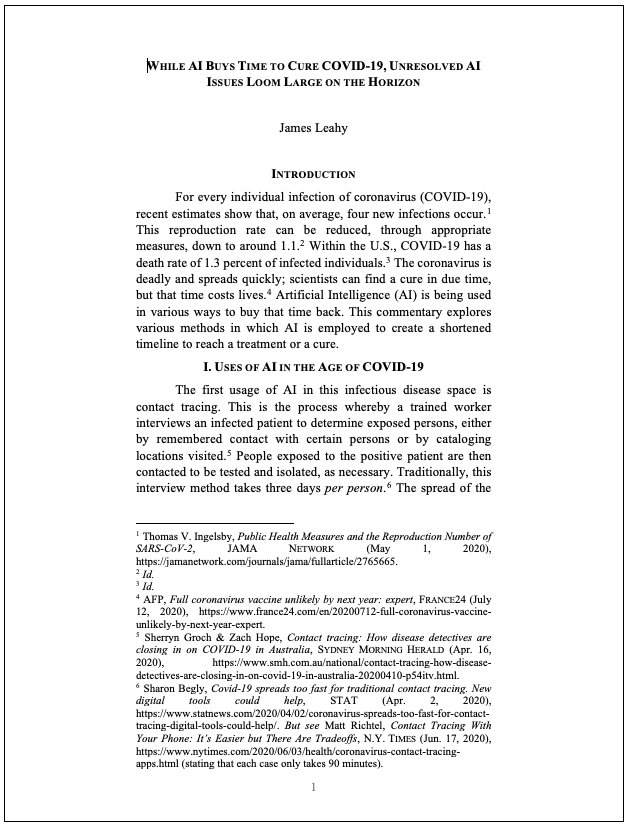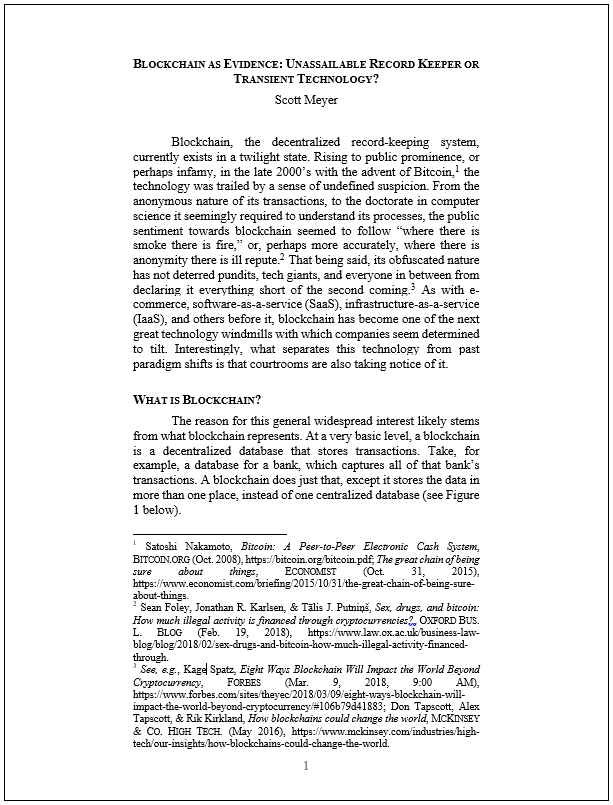Commentary
Through its scholarly research efforts, CLCT has facilitated the creation of many written works, exploring the various legal issues associated with the development and use of emerging technologies. Read from CLCT’s sample of selected works below, listed alphabetically by year.
2022
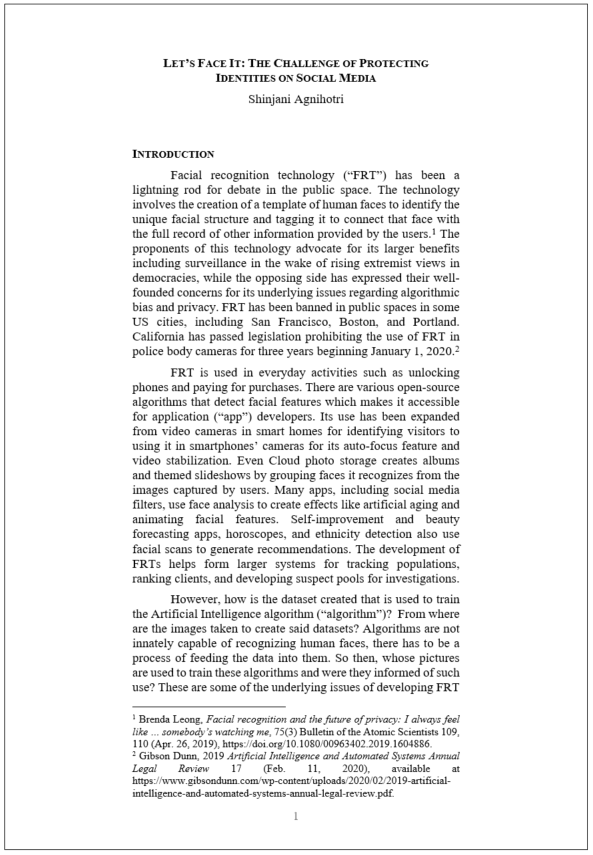
Let’s Face It: The Challenge of Protecting Identities on Social Media
By Shinjani Agnihotri
Special Mention: 2021/2022 International AI Writing Competition
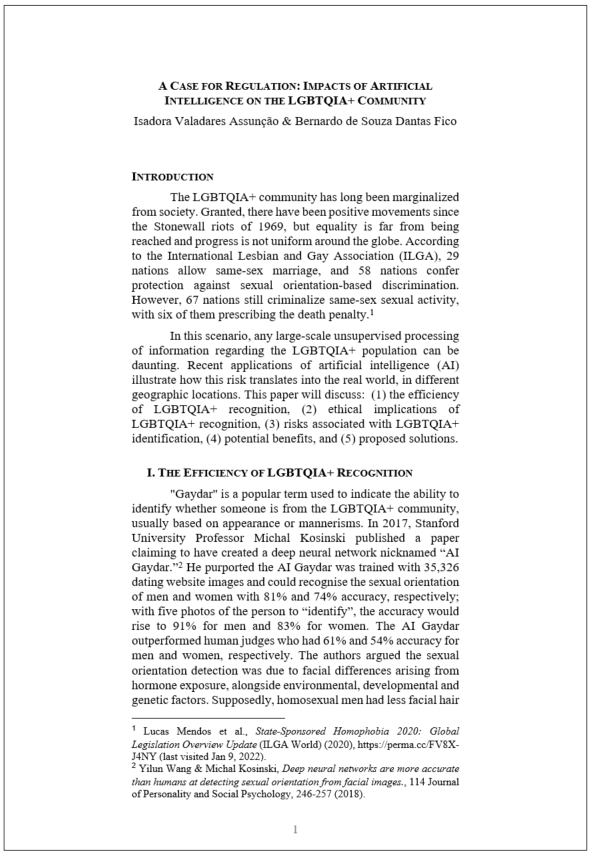
A Case for Regulation: Impacts of Artificial Intelligence on the LGBTQIA+ Community
By Isadora Valadares Assunção & Bernardo de Souza Dantas Fico
Special Mention: 2021/2022 International AI Writing Competition
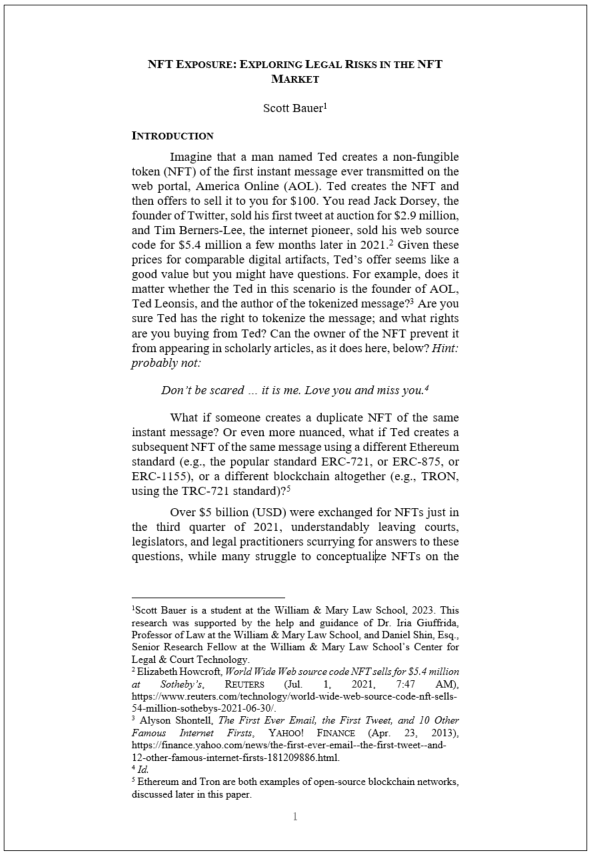
NFT Exposure: Exploring Legal Risks in the NFT Market
By Scott Bauer
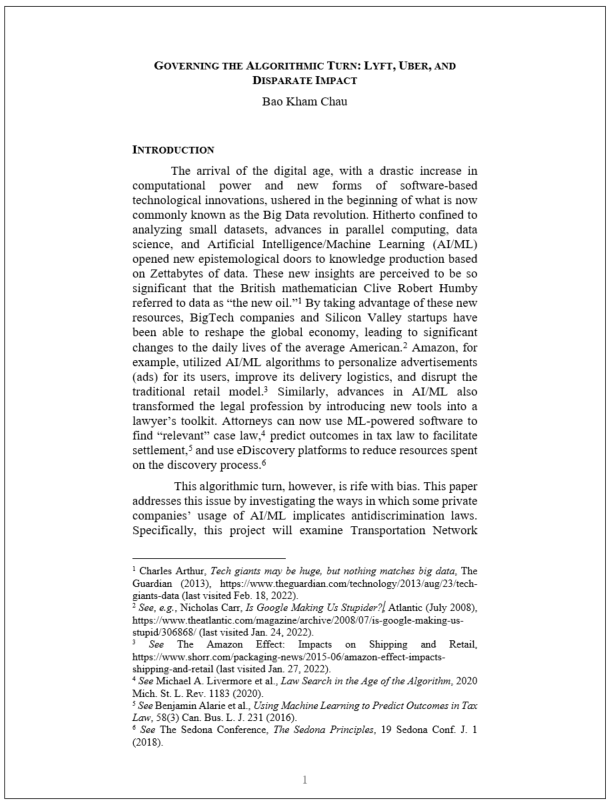
Governing the Algorithmic Turn: Lyft, Uber, and Disparate Impact
By Bao Kham Chau
First Place: 2021/2022 International AI Writing Competition
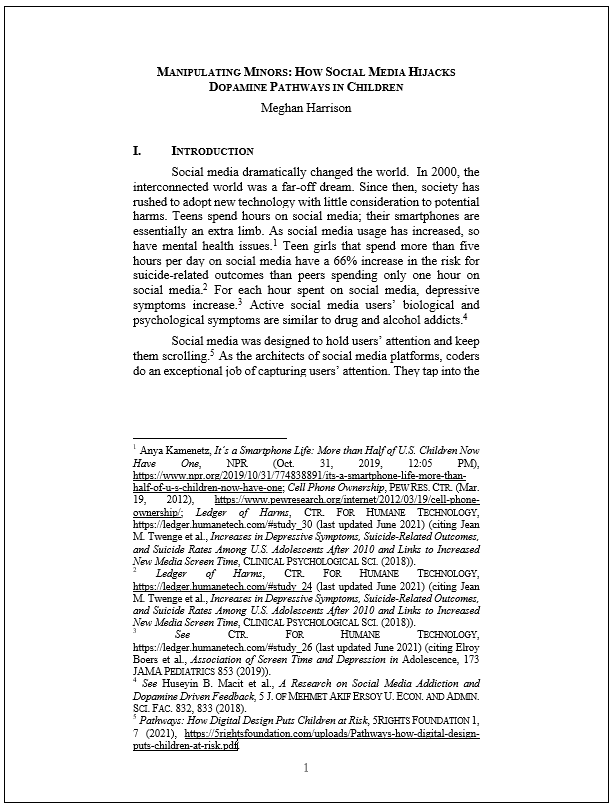
Manipulating Minors: How Social Media Hijacks Dopamine Pathways in Children
By Meghan Harrison
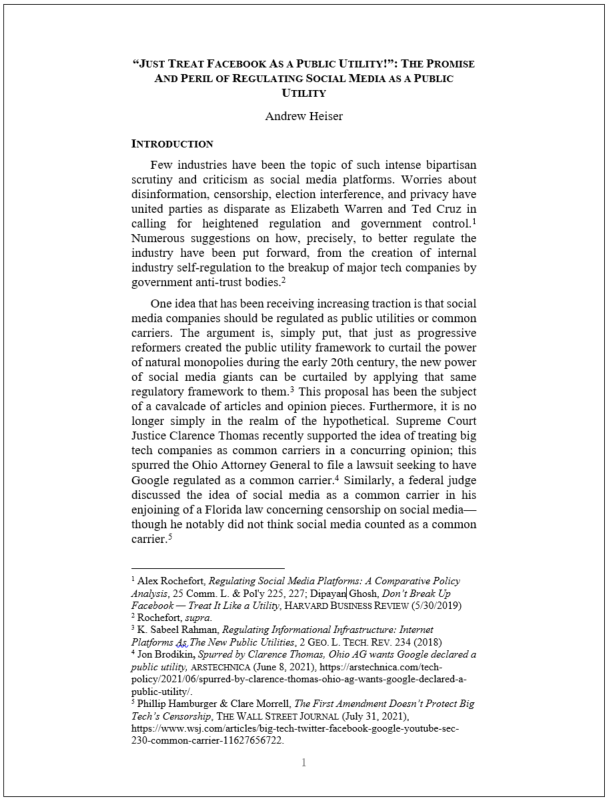
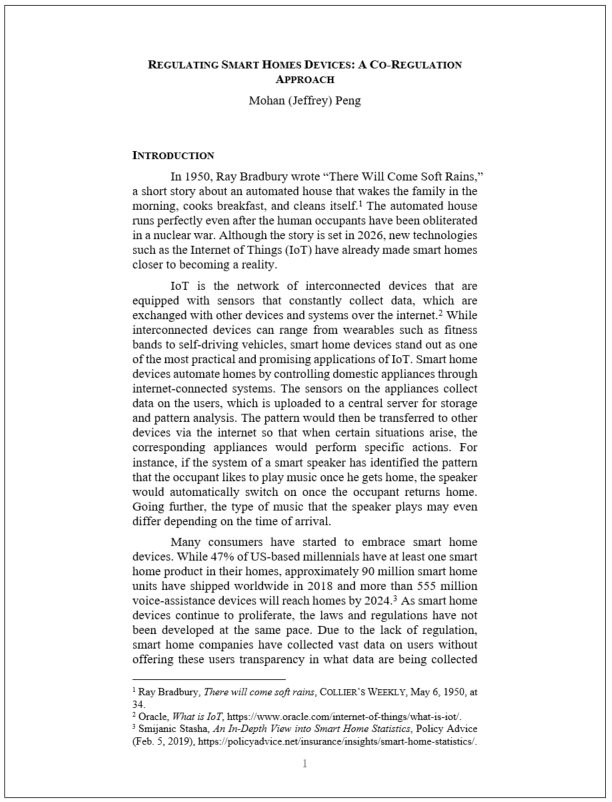
Regulating Smart Homes Devices: A Co-Regulation Approach
By Mohan (Jeffrey) Peng
Third Place: 2021/2022 International AI Writing Competition
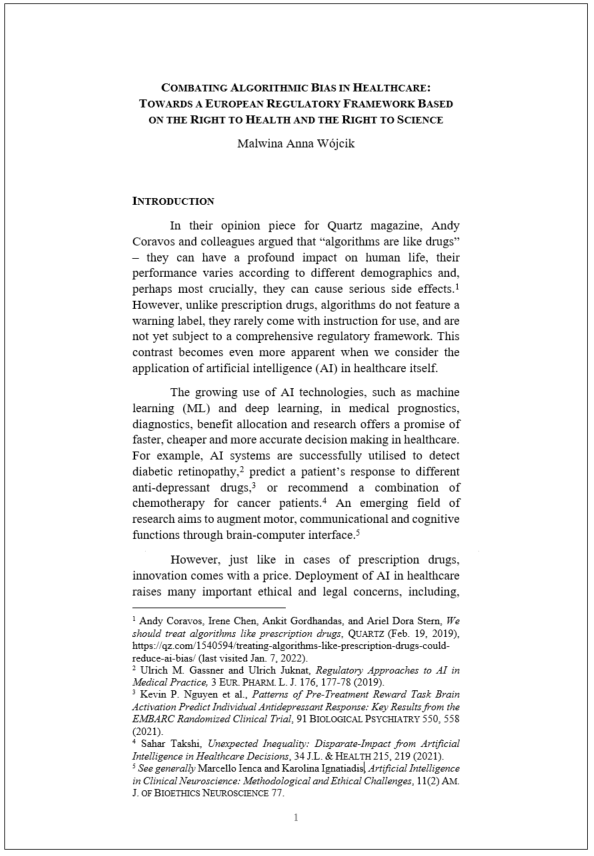
By Malwina Anna Wójcik
Second Place: 2021/2022 International AI Writing Competition
2021
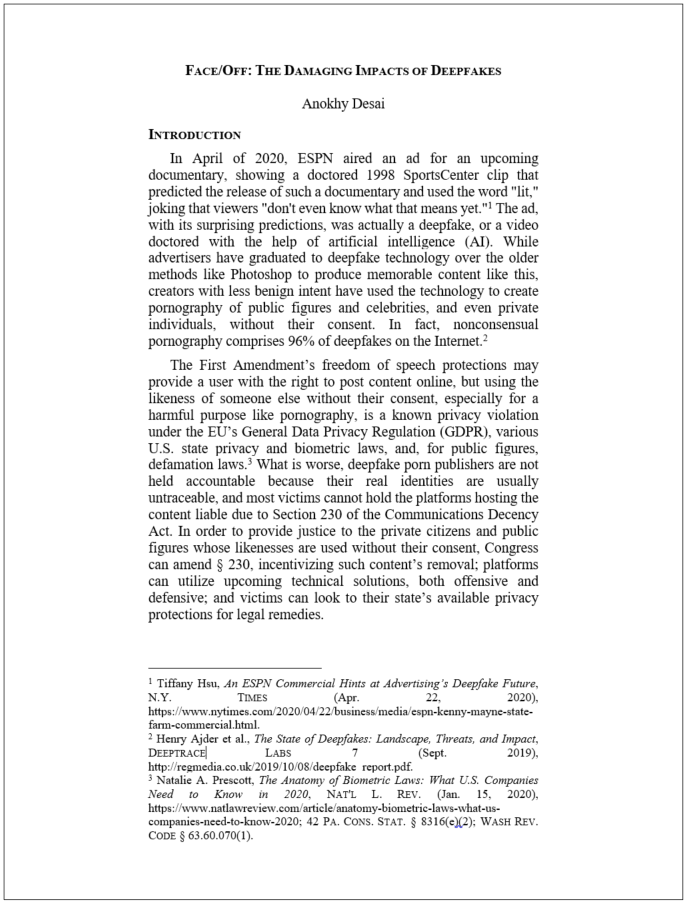
Face/Off—The Damaging Impacts of Deepfakes
By Anokhy Desai
Special Mention: 2020/2021 International AI Writing Competition
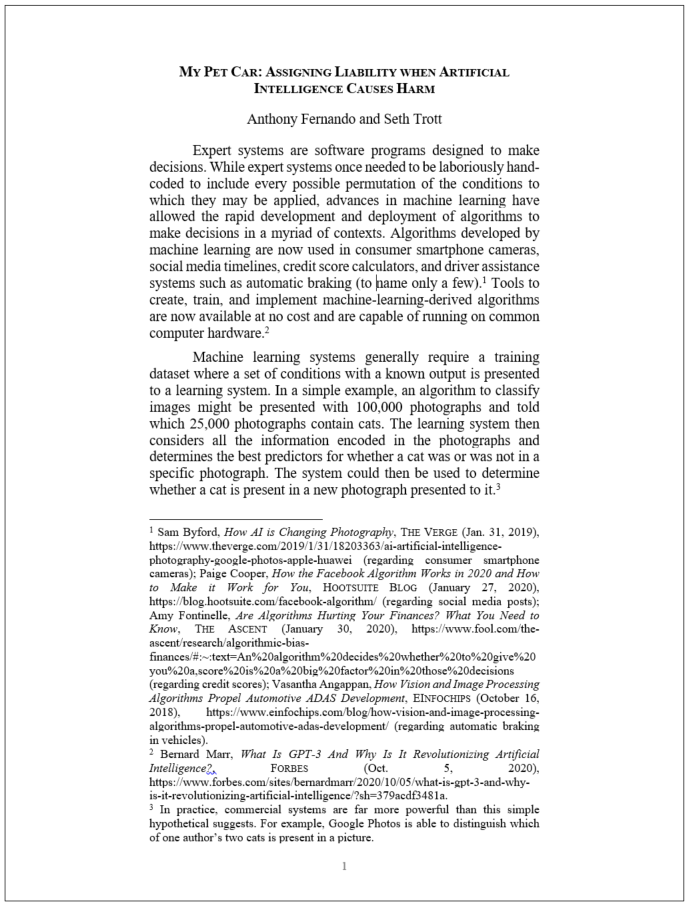
My Pet Car? Assigning Liability When Artificial Intelligence Causes Harm
By Anthony Fernando & Seth Trott
Third Place: 2020/2021 International AI Writing Competition
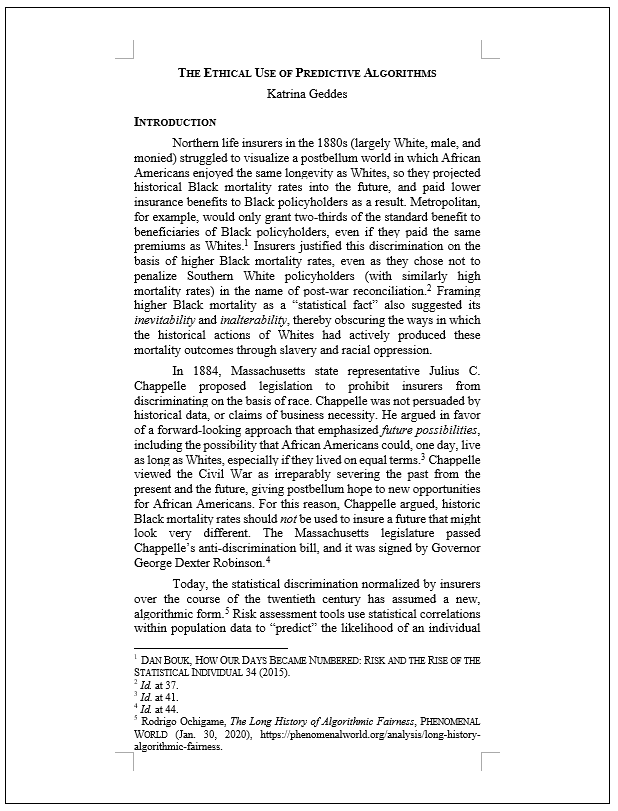
The Ethical Use of Predictive Algorithms
By Katrina Geddes
First Place: 2020/2021 International AI Writing Competition
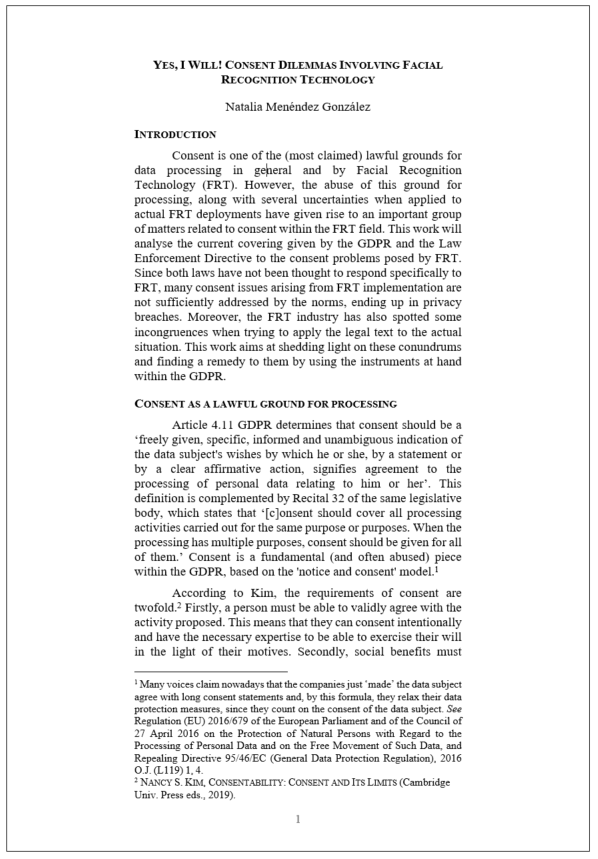
Yes, I Will: Consent Dilemmas Involving Facial Recognition Technology
By Natalia Menéndez González
Special Mention: 2020/2021 International AI Writing Competition
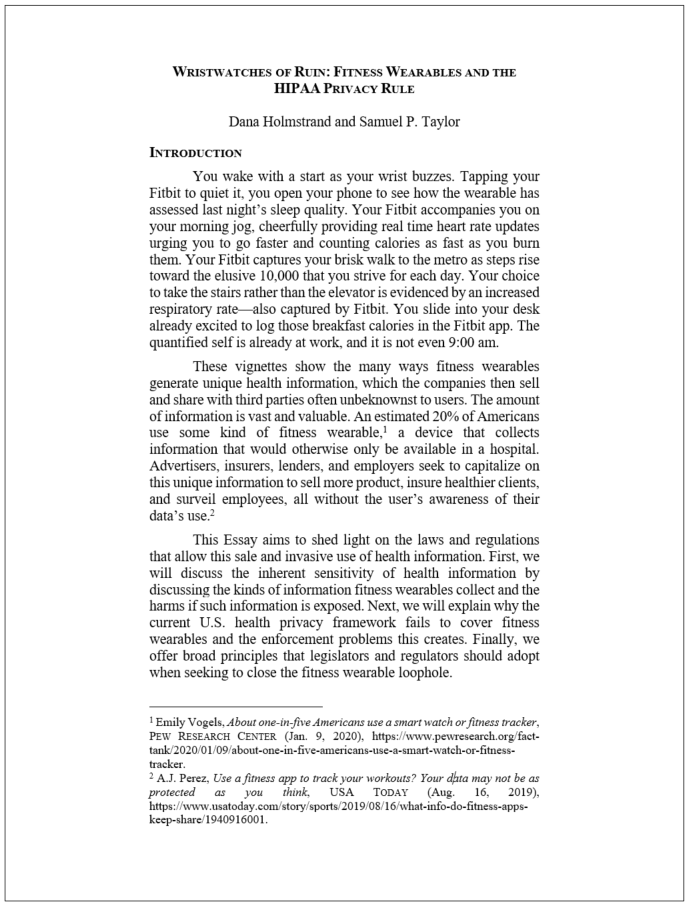
By Dana Holmstrand & Samuel Taylor
Second Place: 2020/2021 International AI Writing Competition
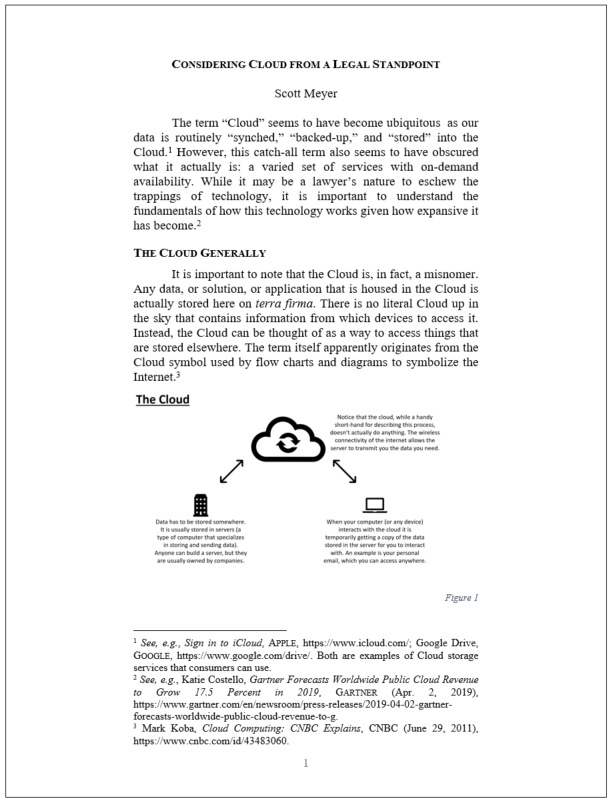
Considering Cloud From a Legal Standpoint
By Scott Meyer
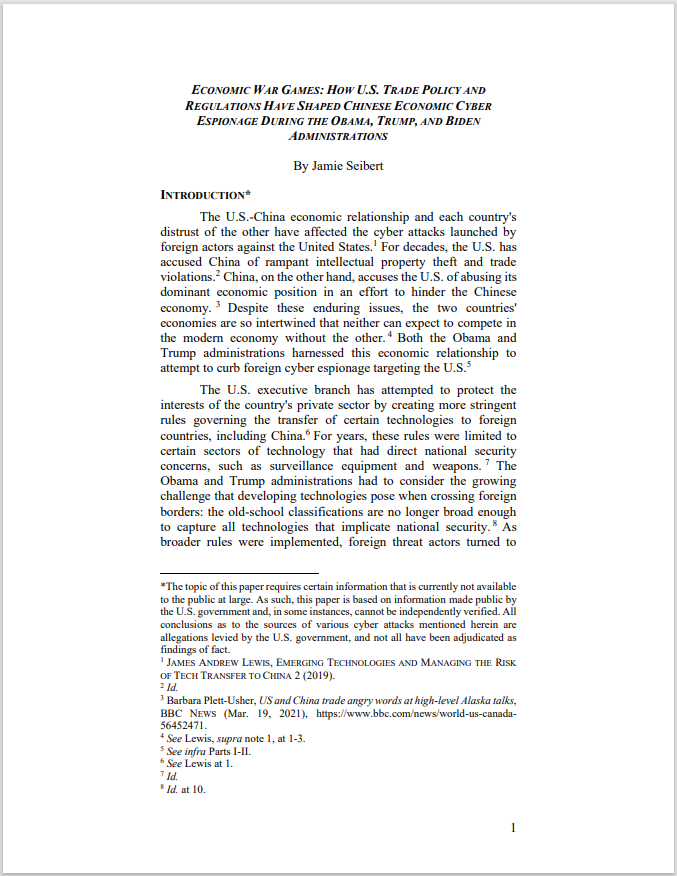
2020
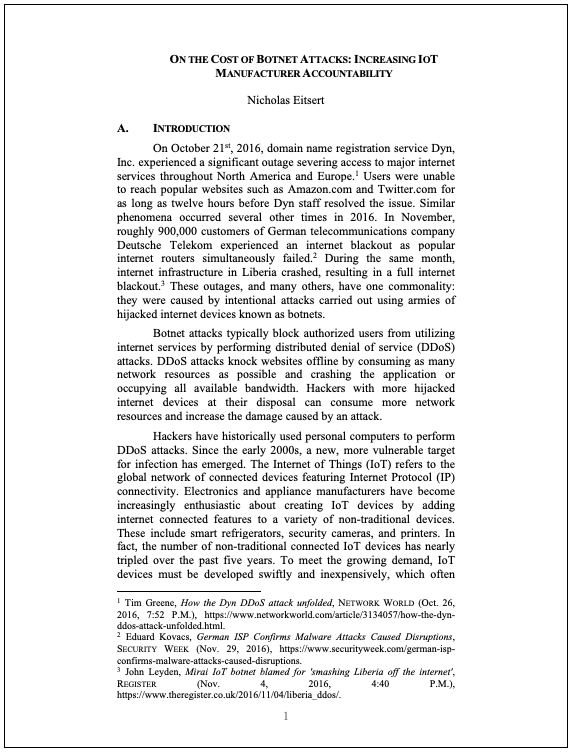
On the Cost of Botnet attacks: Increasing IoT Manufacturer Accountability
By Nicholas Eitsert
First Place: 2019/2020 International AI Writing Competition
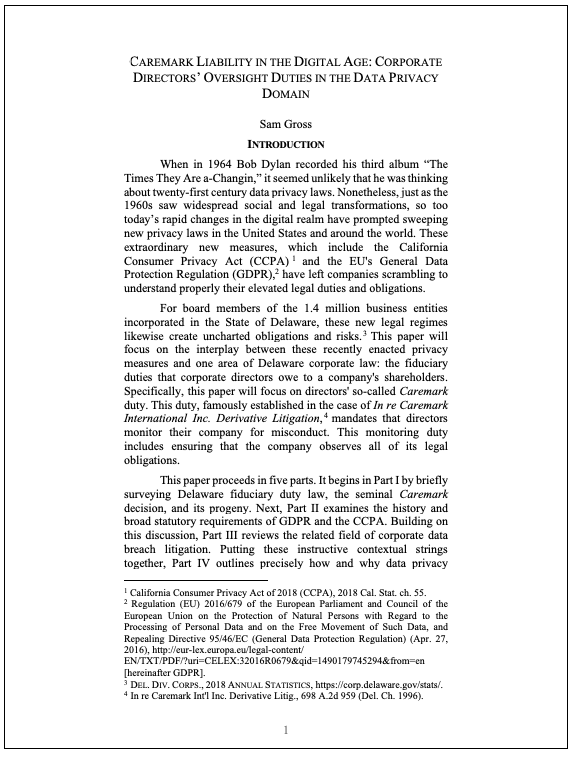
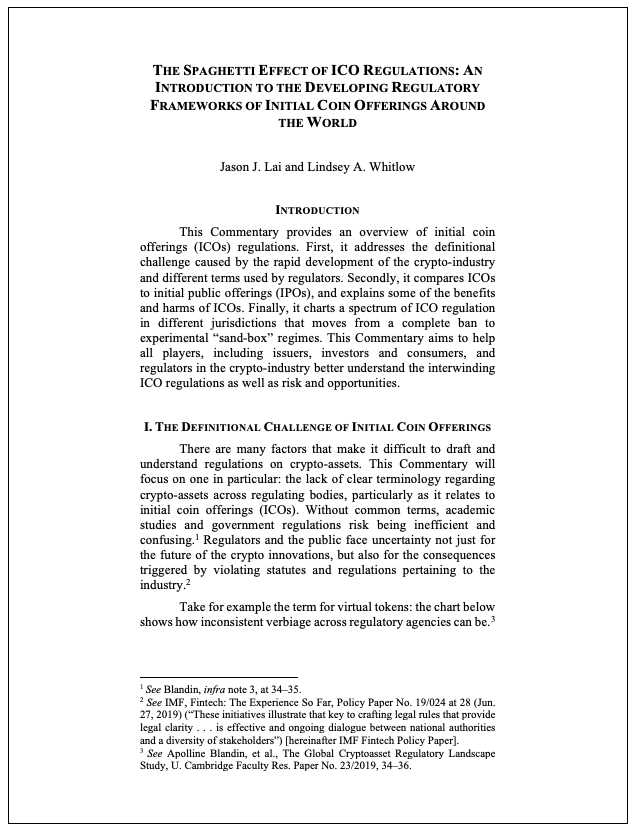
Jason J. Lai and Lindsey A. Whitlow
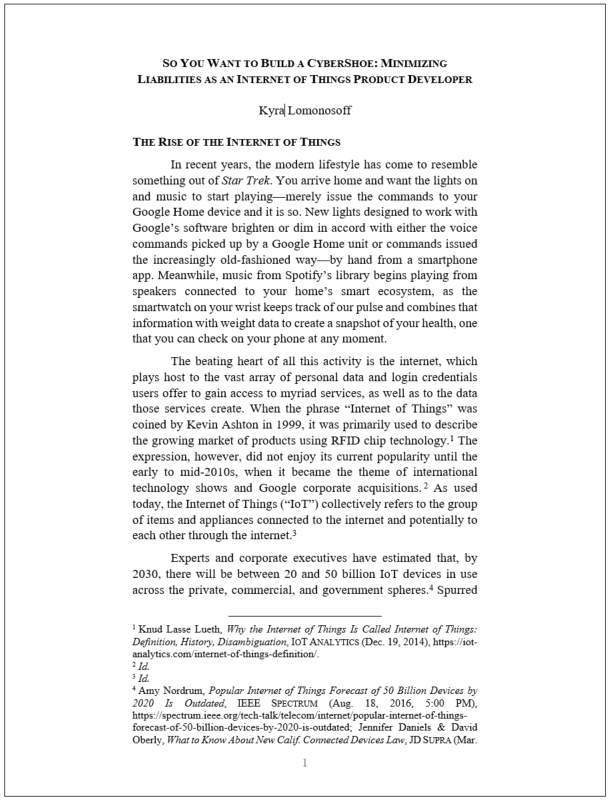
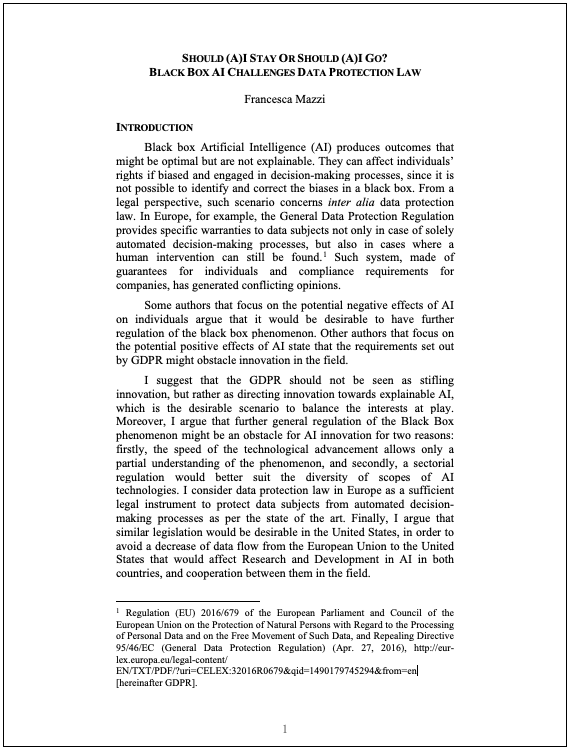
Should (A)I Stay Or Should (A)I Go? Black Box AI Challenges Data Protection Law
By Francesca Mazzi
Special Mention: 2019/2020 International AI Writing Competition
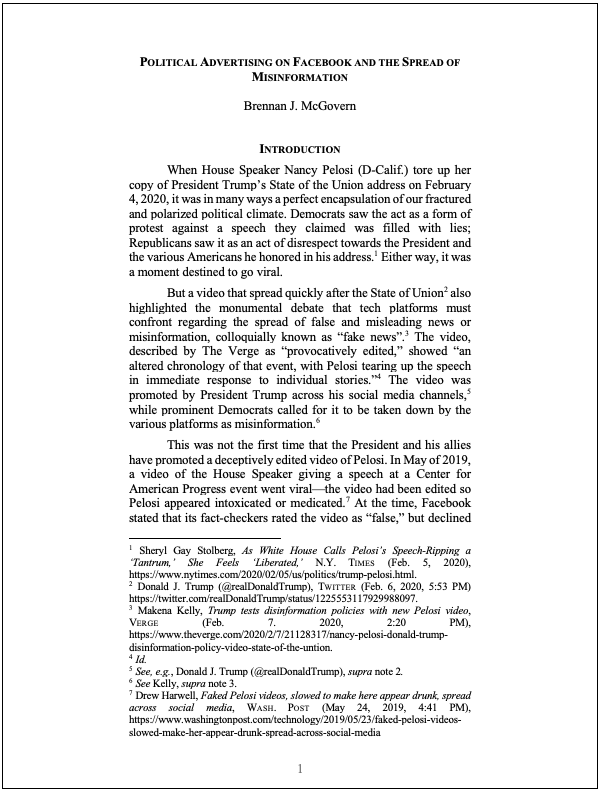
Political Advertising on Facebook and the Spread of Misinformation
By Brennan J. McGovern
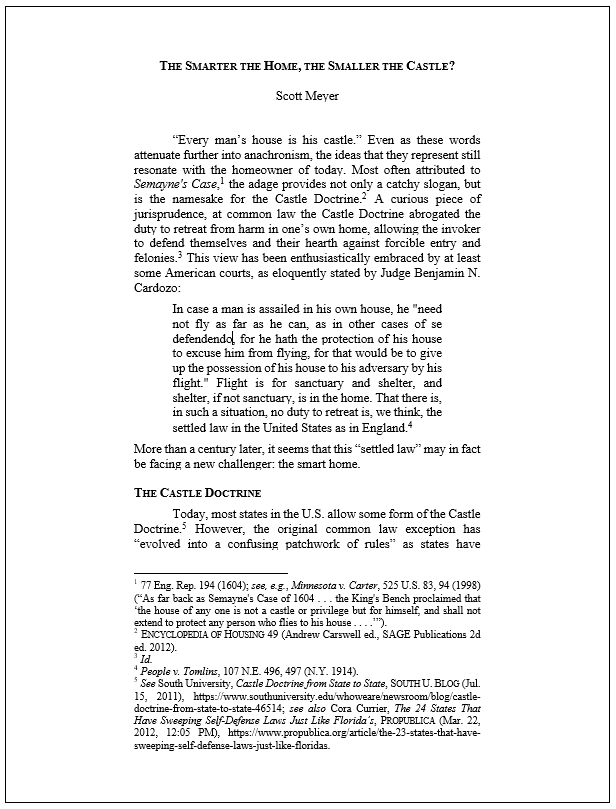
The Smarter the Home, the Smaller the Castle?
By Scott Meyer
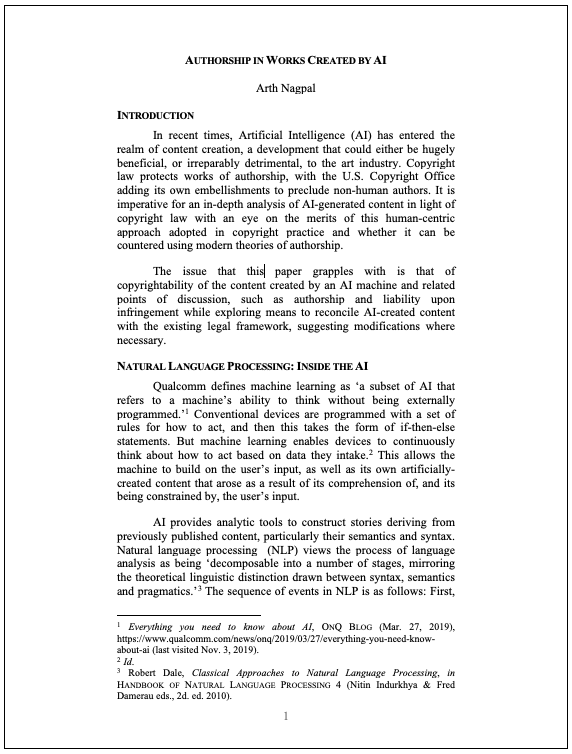
Authorship in Works Created by AI
By Arth Nagpal
Special Mention: 2019/2020 International AI Writing Competition
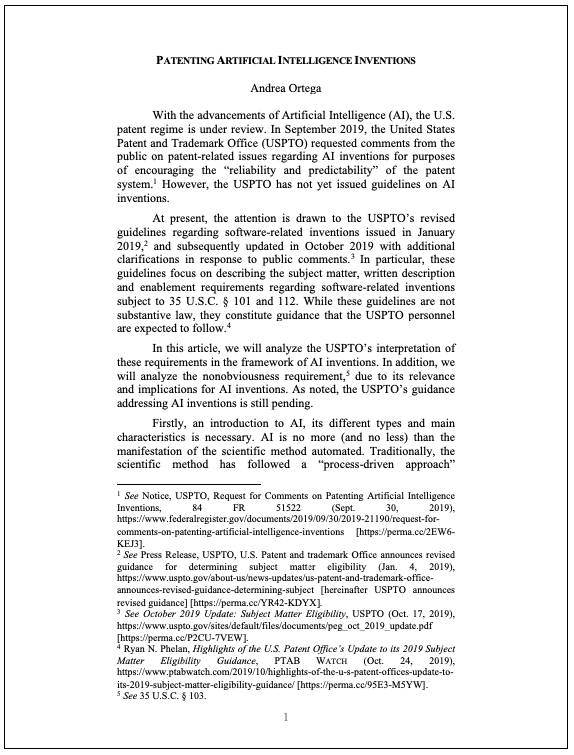
Patenting Artificial Intelligence Inventions
By Andrea Ortega
Second Place: 2019/2020 International AI Writing Competition
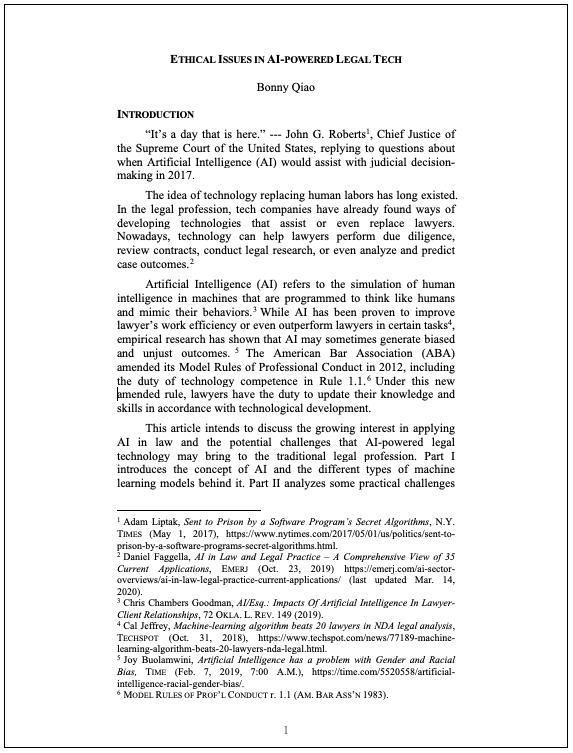
Ethical Issues in AI-Powered Legal Tech
By Bonny Qiao
Third Place: 2019/2020 International AI Writing Competition
2019
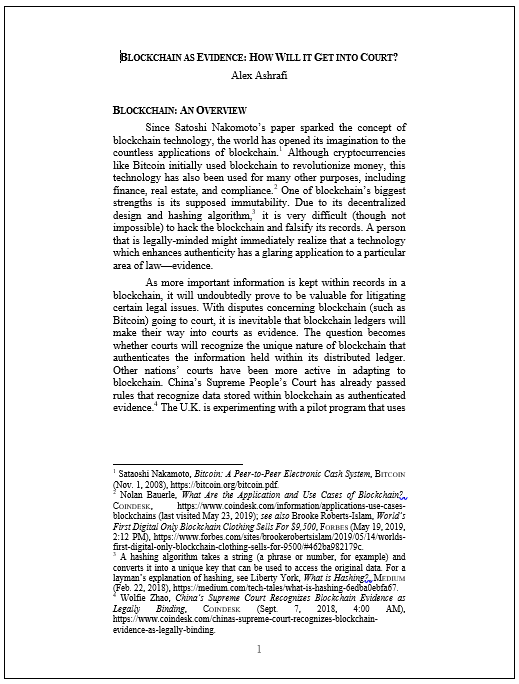
Blockchain as Evidence: How Will It Get Into Court?
By Alex Ashrafi
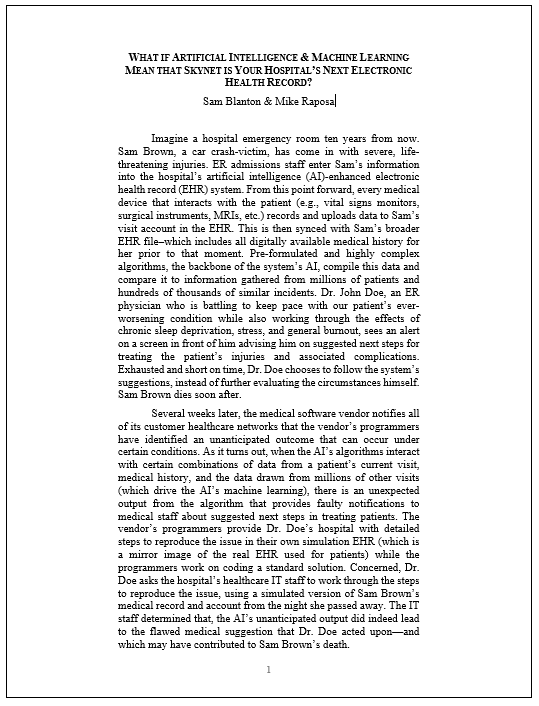
by Sam Blanton & Mike Raposa
Republished courtesy of CLCT Court Affiliates Website
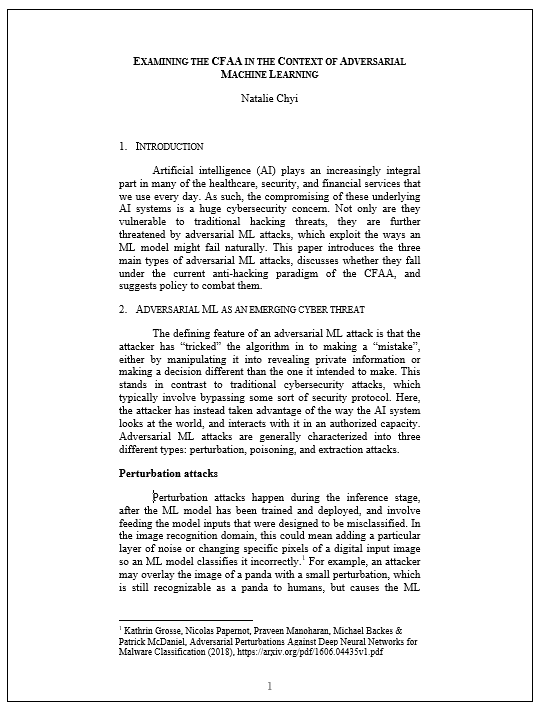
Examining the CFAA in the Context of Adversarial Machine Learning
by Natalie Chyi
Second Place: 2018/2019 International AI Writing Competition (J.D./LL.M. Division)
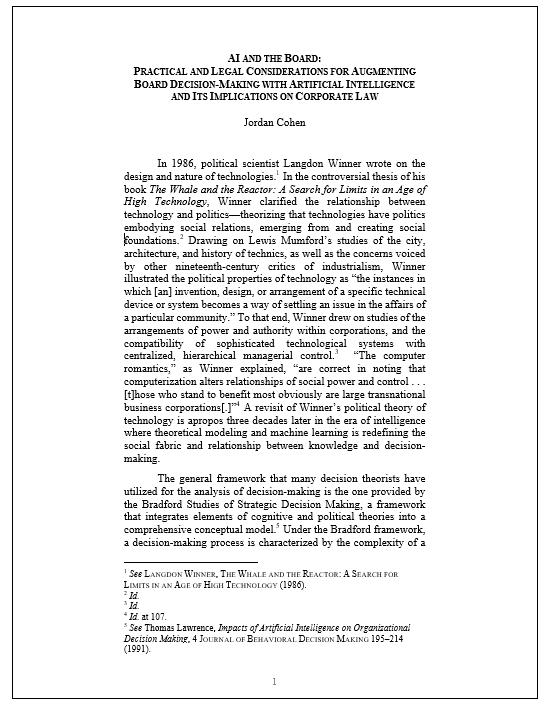
AI & the Board: Practical & Legal Considerations for Augmenting Board Decision-Making
by Jordan Cohen
First Place: 2018/2019 International AI Writing Competition (J.D./LL.M. Division)
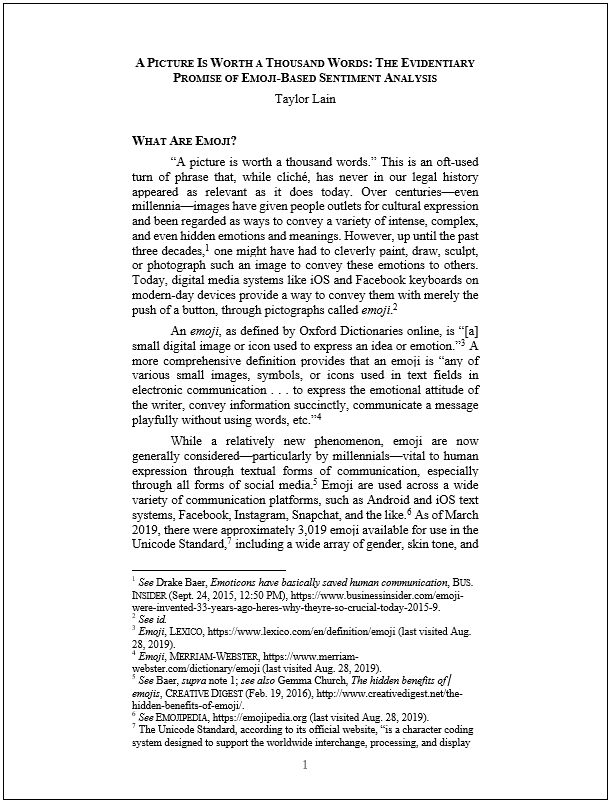
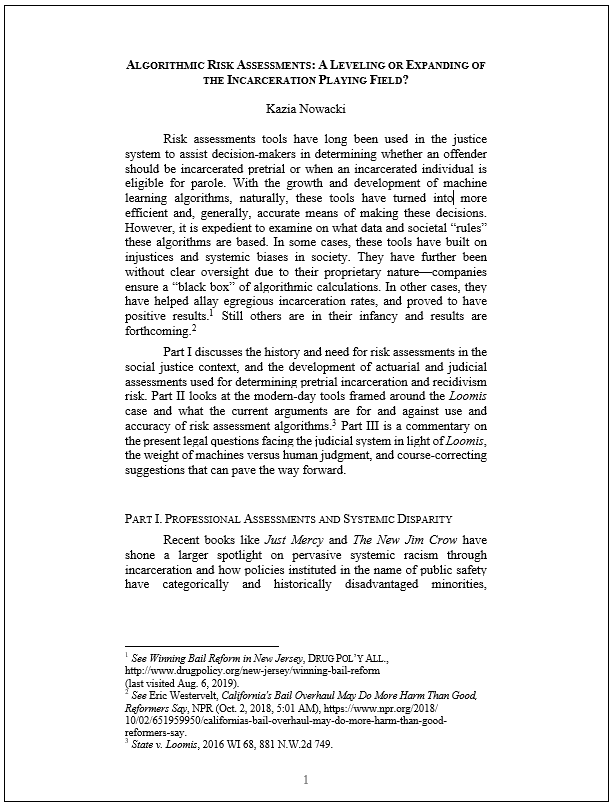
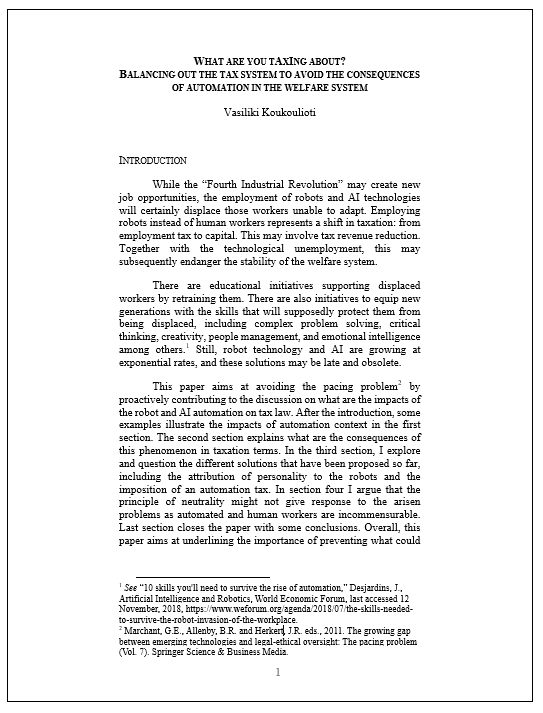
by Vasiliki Koukoulioti
First Place: 2018/2019 International AI Writing Competition (Ph.D. Division)
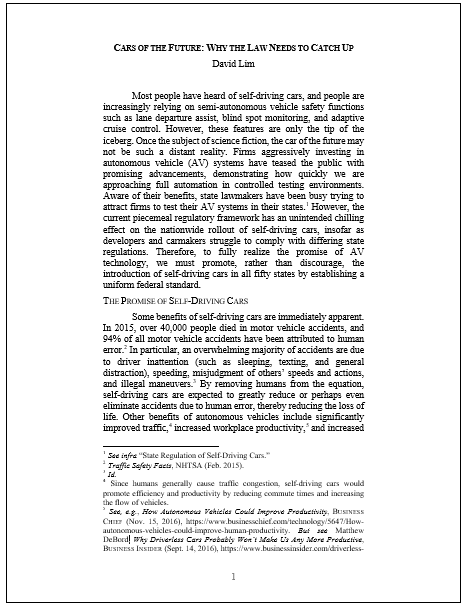
Cars of the Future: Why the Law Needs to Catch Up
by David Lim
Republished courtesy of CLCT Court Affiliates Website
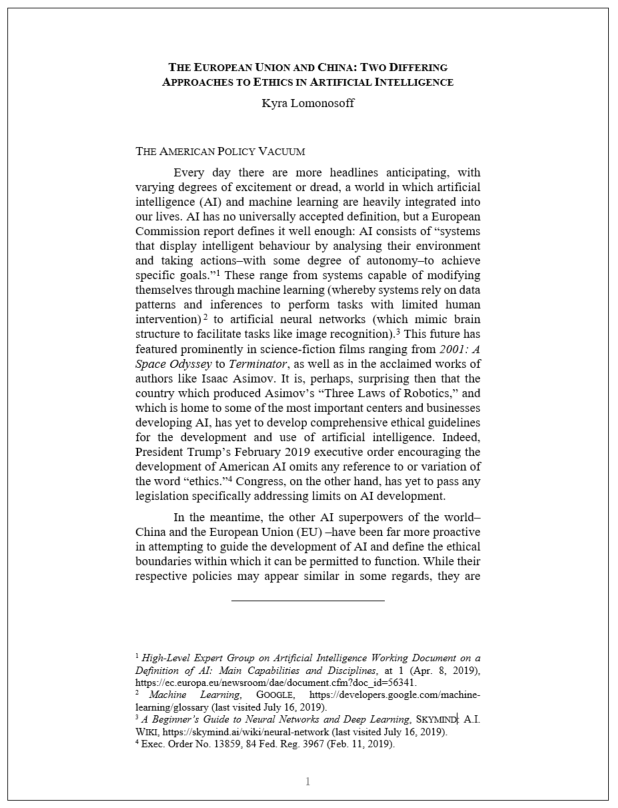
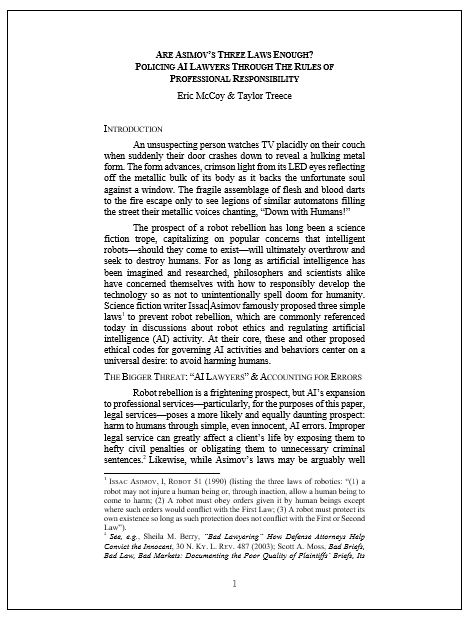
Are Asimov’s Three Laws Enough? Policing AI Lawyers Through the Rules of Professional Responsibility
by Eric McCoy & Taylor Treece
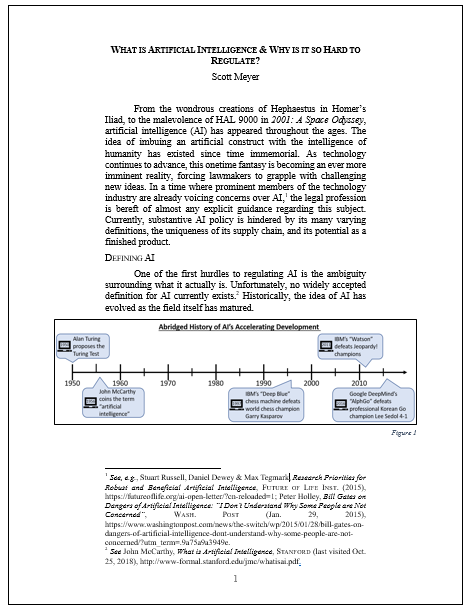
What is AI & Why is it So Hard to Regulate?
by Scott Meyer
Republished courtesy of CLCT Court Affiliates Website
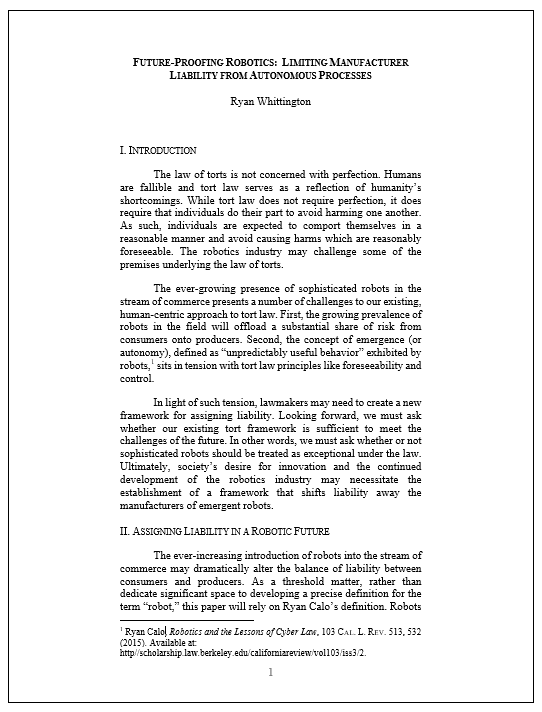
Future-Proofing Robotics: Limiting Manufacturer Liability from Autonomous Processes
by Ryan Whittington
Special Mention: 2018/2019 International AI Writing Competition
2018
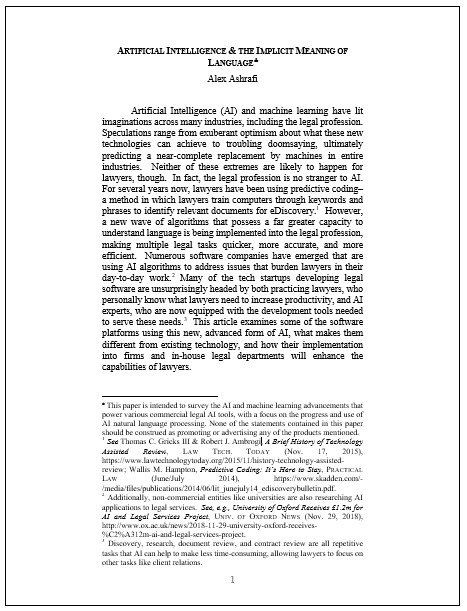
Artificial Intelligence & The Implicit Meaning of Language
by Alex Ashrafi
Republished courtesy of CLCT Court Affiliates Website
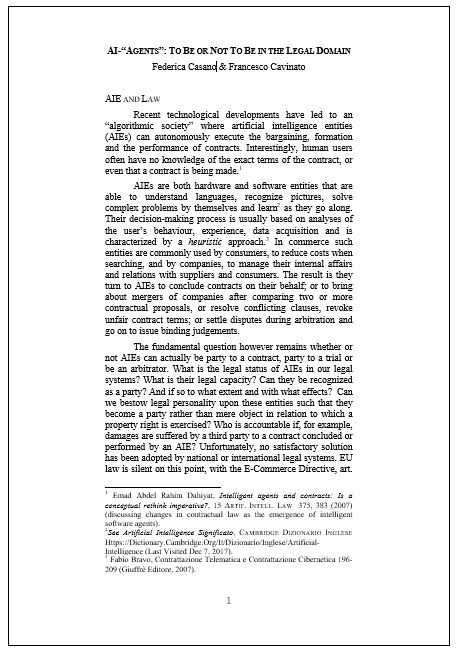
AI-“Agents”: To Be or Not to Be in the Legal Domain
by Federica Casano & Francesco Cavinato
Third Place: 2017/2018 International AI Writing Competition
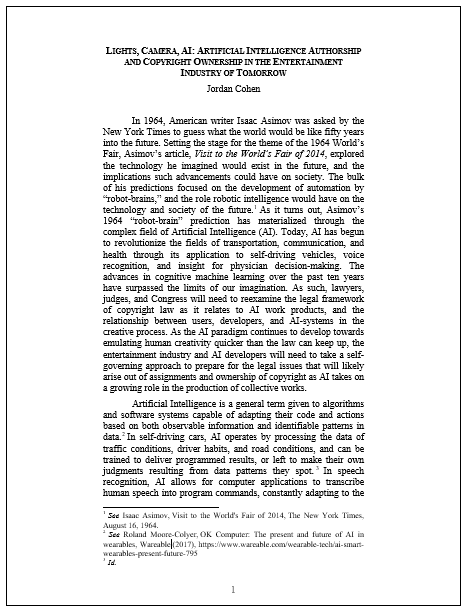
by Jordan Cohen
First Place: 2017/2018 International AI Writing Competition
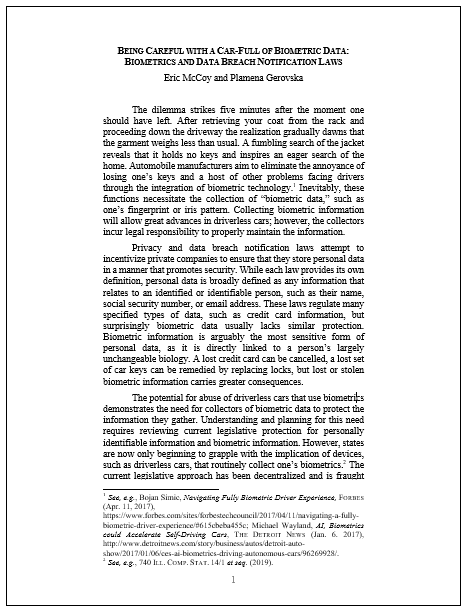
Being Careful with a Car-Full of Biometric Data: Biometrics and Data Breach Notification Laws
by Eric McCoy & Plamena Gerovska
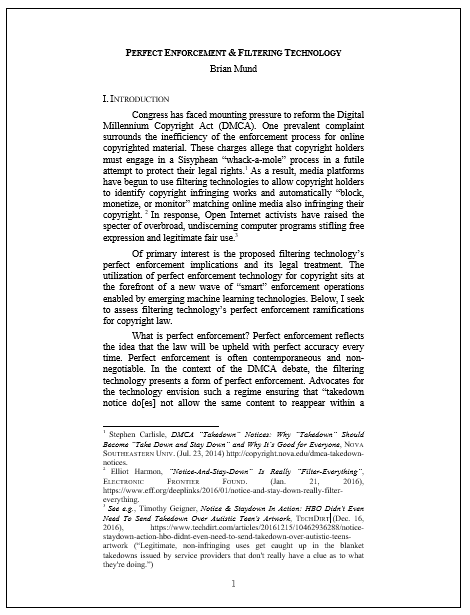
Perfect Enforcement & Filtering Technology
by Brian Mund
Second Place: 2017/2018 International AI Writing Competition
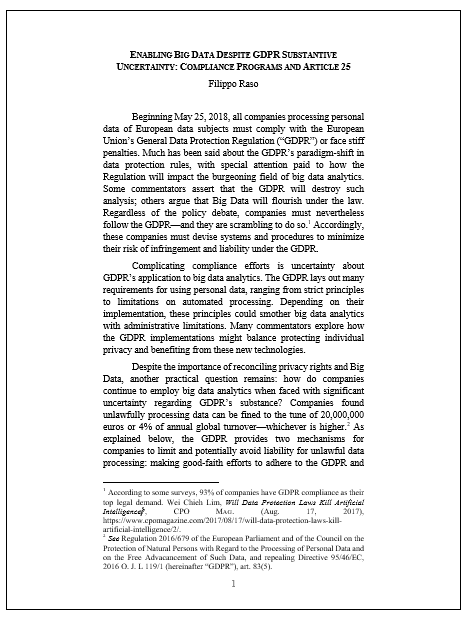
Enabling Big Data Despite GDPR Substantive Uncertainty: Compliance Programs and Article 25
by Filippo Raso
Special Mention: 2017/2018 International AI Writing Competition
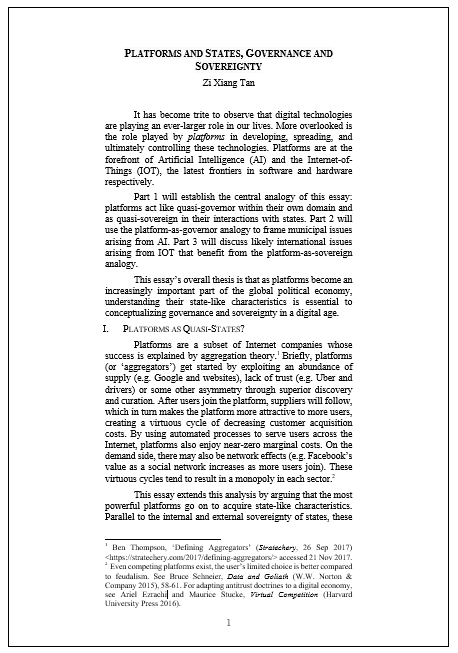
Platforms and States, Governance and Sovereignty
by Zi Xiang Tan
Special Mention: 2017/2018 International AI Writing Competition
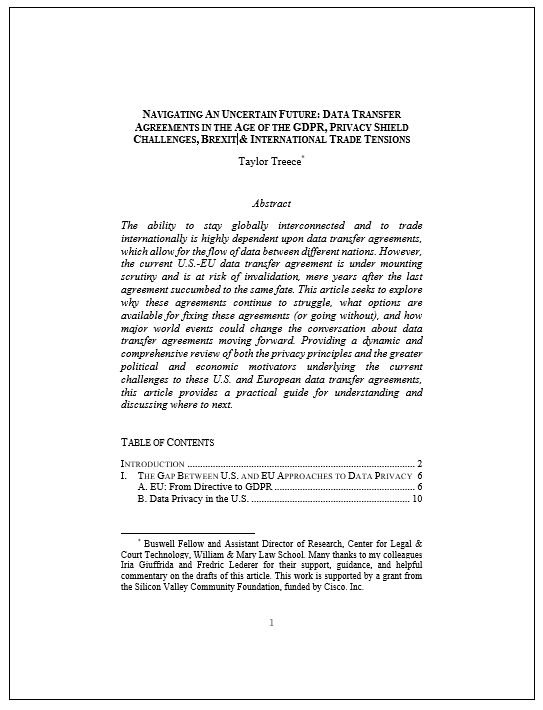
by Taylor Treece
An earlier iteration of this paper was awarded Third Prize at the 2018 Berkeley Technology Law Journal Writing Competition
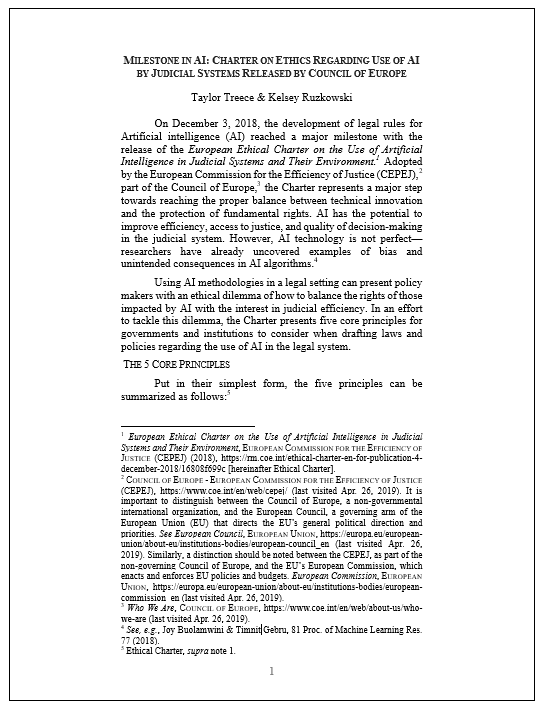
by Taylor Treece & Kelsey Ruzkowski
Republished courtesy of CLCT Court Affiliates Website
This content has been updated on October 2, 2022 at 5:15 pm.

